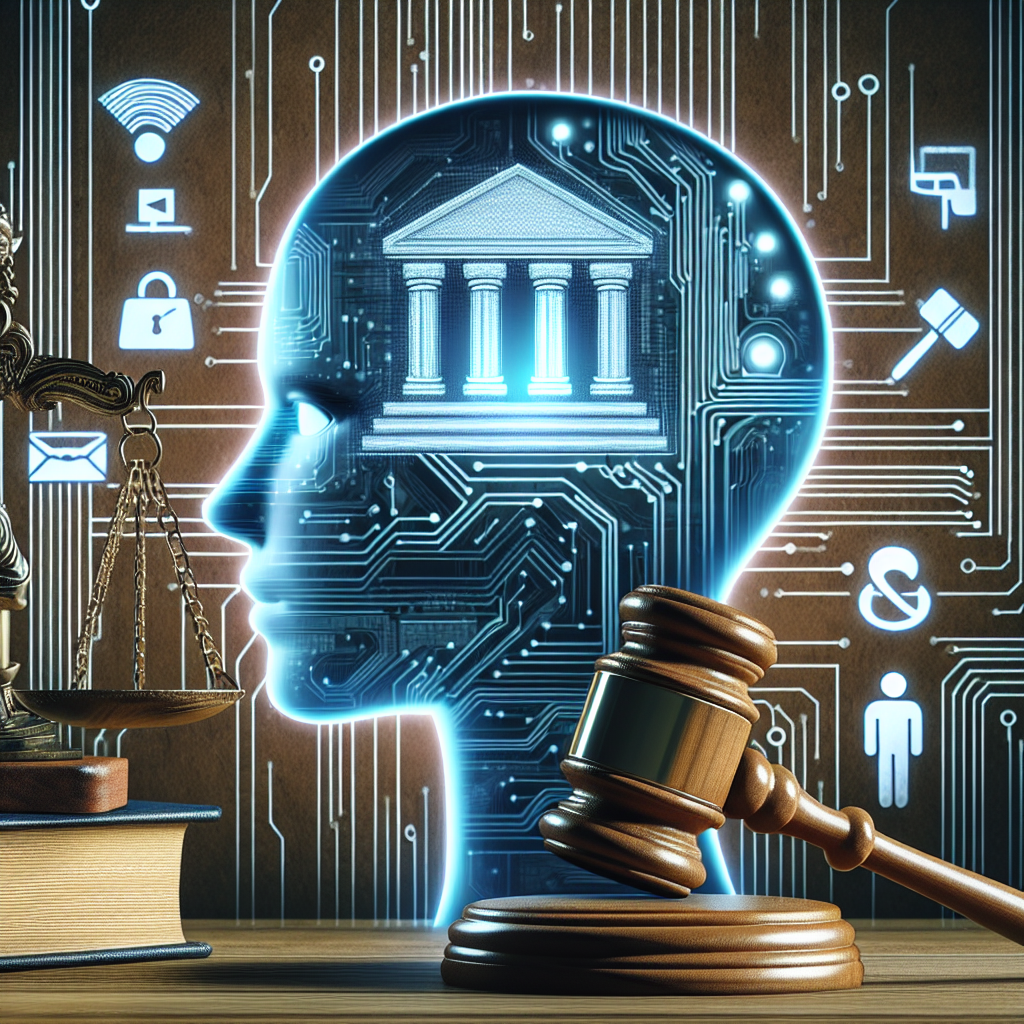Artificial Intelligence (AI) has the potential to revolutionize the way governments operate, making processes more efficient and effective. However, as AI becomes more integrated into government systems, questions arise about its impact on ethics and accountability. In this article, we will explore how AI is shaping the future of government ethics and accountability, and what steps can be taken to ensure transparency and fairness in the use of this technology.
AI and Government Ethics
AI technology has the ability to streamline government operations, improve decision-making processes, and enhance public services. However, the use of AI in government also raises ethical concerns related to privacy, bias, and accountability.
One of the main ethical concerns surrounding AI in government is the issue of privacy. As AI systems collect and analyze vast amounts of data, there is a risk that sensitive information about individuals could be misused or compromised. Governments must ensure that proper safeguards are in place to protect the privacy of their citizens and that data is used in a transparent and responsible manner.
Another ethical issue related to AI in government is bias. AI algorithms are only as good as the data they are trained on, and if this data is biased or incomplete, it can lead to discriminatory outcomes. Governments must be vigilant in ensuring that AI systems are fair and unbiased, and that they do not perpetuate existing inequalities or discrimination.
Accountability is also a key concern when it comes to AI in government. As AI systems become more autonomous and make decisions that affect people’s lives, it is essential that there is transparency and oversight in place to hold these systems accountable. Governments must be transparent about how AI is being used, and ensure that there are mechanisms in place to review and challenge decisions made by AI systems.
The Future of Government Ethics and Accountability
As AI technology continues to advance, it is clear that governments will need to adapt their ethical frameworks and accountability mechanisms to keep pace with these changes. Here are some key considerations for the future of government ethics and accountability in the age of AI:
1. Transparency: Governments must be transparent about how AI is being used in decision-making processes, and ensure that there are clear guidelines in place for the responsible use of this technology. This includes being transparent about the data that is being used to train AI algorithms, as well as how decisions are being made by AI systems.
2. Oversight: Governments must establish oversight mechanisms to review and challenge decisions made by AI systems. This could include setting up independent bodies to audit the use of AI in government, as well as creating channels for citizens to raise concerns about the use of AI technology.
3. Accountability: Governments must hold AI systems accountable for their decisions, and ensure that there are consequences for unethical or biased behavior. This could involve creating legal frameworks to regulate the use of AI in government, as well as establishing mechanisms for redress in cases where AI systems have made mistakes or caused harm.
4. Training and Education: Governments must invest in training and education programs to ensure that public officials are equipped with the skills and knowledge needed to use AI technology responsibly. This could include training programs on data ethics, bias mitigation, and algorithmic accountability.
5. Public Engagement: Governments must engage with the public to ensure that there is transparency and accountability in the use of AI technology. This could involve consulting with citizens on the use of AI in government, as well as creating channels for feedback and input on AI-related decisions.
FAQs
Q: How can governments ensure that AI systems are fair and unbiased?
A: Governments can ensure that AI systems are fair and unbiased by carefully monitoring the data that is being used to train these systems, and implementing measures to mitigate bias. This could include conducting regular audits of AI algorithms, and using diverse datasets to train AI systems.
Q: How can governments ensure transparency in the use of AI technology?
A: Governments can ensure transparency in the use of AI technology by being open about how AI is being used in decision-making processes, and providing clear guidelines for the responsible use of this technology. This could include publishing information about the data that is being used to train AI algorithms, as well as how decisions are being made by AI systems.
Q: What are some examples of AI being used in government?
A: There are many examples of AI being used in government, including the use of AI algorithms to analyze data and make predictions in areas such as healthcare, transportation, and law enforcement. For example, AI systems can be used to analyze healthcare data to identify trends and patterns, or to predict traffic congestion and optimize transportation routes.
Q: How can citizens hold governments accountable for the use of AI technology?
A: Citizens can hold governments accountable for the use of AI technology by staying informed about how AI is being used in government, and by raising concerns and questions about the ethical implications of this technology. Citizens can also advocate for transparency and oversight mechanisms to ensure that AI systems are being used responsibly.
In conclusion, AI has the potential to transform the way governments operate, but it also poses ethical challenges related to privacy, bias, and accountability. To ensure that AI is used responsibly in government, it is essential that there is transparency, oversight, and accountability in place. By taking proactive steps to address these ethical concerns, governments can harness the power of AI technology to improve public services and enhance decision-making processes.

